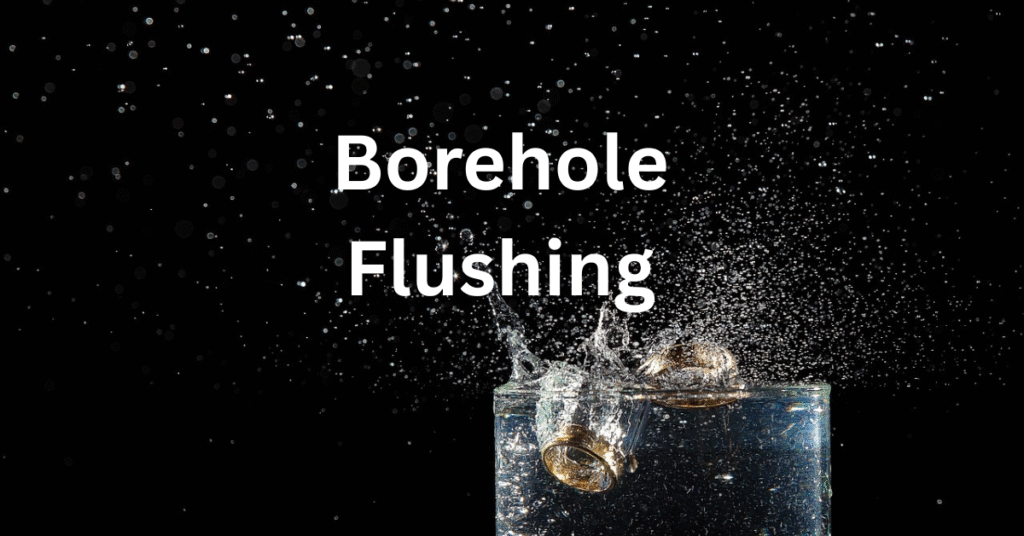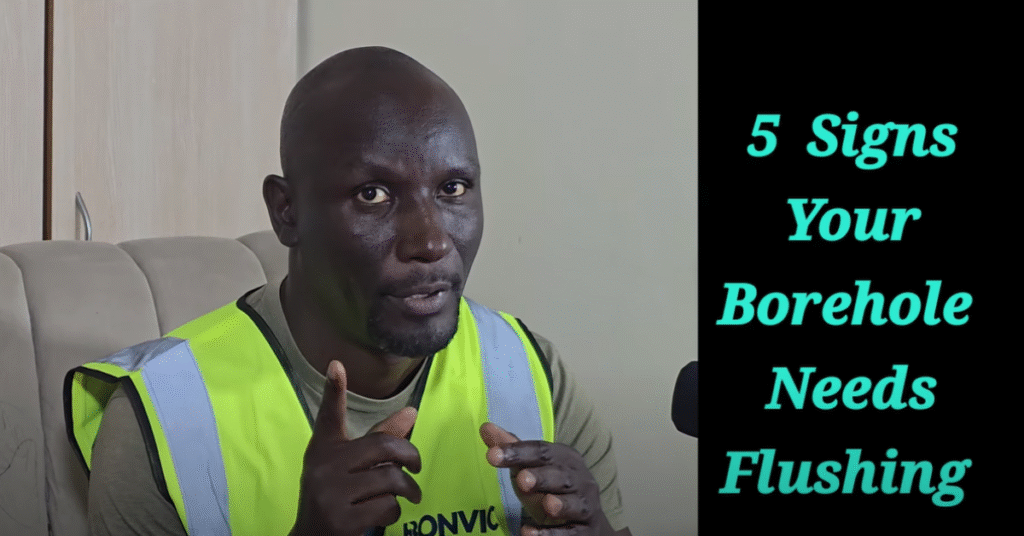A borehole is a long-term investment that provides a reliable water supply for homes, farms, industries, and businesses.
However, like any other infrastructure, a borehole requires regular maintenance to ensure optimal performance and longevity.
Many owners assume that once the borehole is drilled and a pump is installed, it will function indefinitely without issues.
Unfortunately, neglecting maintenance can reduce water yield, pump failure, contamination, and costly repairs.
To avoid such problems, boreholes should be maintained at scheduled intervals.
This article explains how often a borehole should be maintained, the key maintenance procedures, signs of potential issues, and why professional servicing is essential.
Also, read >>> Will Borehole Water Clear After Drilling?
How Often Should a Borehole Be Maintained?

Borehole maintenance should follow a structured schedule to keep the system running efficiently.
Below are the three primary categories of borehole maintenance:
1. Routine Maintenance (Every 6–12 Months)
Regular borehole maintenance should occur at least once or twice a year. This helps to identify minor issues before they escalate into major problems. Key routine maintenance activities include:
- Visual inspection of the borehole wellhead, casing, and pump system.
- Checking for leaks, unusual noises, or vibrations in the pump.
- Measuring the borehole’s static and dynamic water levels.
- Flushing and cleaning the borehole to remove debris, silt, or bacterial buildup.
- Testing water quality for contaminants such as bacteria, heavy metals, and pH levels.
Routine maintenance ensures the borehole remains in good condition and operates efficiently.
2. Comprehensive Maintenance (Every 2–3 Years)
While routine maintenance addresses minor wear and tear, a more detailed service should be performed every two to three years. This involves:

- Conducting a borehole camera inspection to check for blockages, casing damage, or screen deterioration.
- Servicing or replacing the pump to maintain efficiency and avoid sudden failures.
- Cleaning and disinfection of the borehole to eliminate bacterial contamination.
- Inspecting and repairing electrical connections, control panels, and safety switches.
Comprehensive maintenance is crucial for extending the life of the borehole and preventing costly repairs.
Also, read >>> What Is an Artesian Well? Everything You Need to Know
3. Emergency Maintenance (As Needed)
Unexpected borehole failures can happen due to mechanical wear, changes in water table levels, or contamination. In such cases, immediate maintenance is required. Some of the emergency scenarios include:
- A sudden drop in water yield or complete loss of water supply.
- Cloudy, dirty, or foul-smelling water, which may indicate contamination.
- The pump malfunctions or makes unusual noises from the motor.
- High electricity bills could suggest pump inefficiency or blockages.
In such situations, it is advisable to call a professional borehole service provider like Bonvic Drilling Company to diagnose and fix the issue promptly.
Signs That Your Borehole Needs Maintenance

Even if your borehole seems to be working well, there are warning signs that indicate a need for maintenance. These include:
- Decreased Water Pressure or Flow Rate – This could be due to pump wear, clogged screens, or reduced water levels.
- Muddy or Cloudy Water – This may be caused by silt, rust, or bacterial contamination.
- Unusual Noises from the Pump – Strange sounds can indicate mechanical damage, air leaks, or debris in the system.
- Bad Taste or Smell in Water – A sign of bacterial growth or chemical contamination.
- Increased Electricity Consumption – If your pump consumes more power than usual, it may be straining due to inefficiency or obstructions.
Addressing these issues early can prevent major breakdowns and costly repairs.
Borehole Maintenance Checklist
A structured maintenance checklist helps in keeping track of necessary servicing. Below are key borehole maintenance tasks:
Every 6–12 Months (Routine Maintenance)
- Inspect borehole wellhead and pump components.
- Check water yield and pressure.
- Conduct water quality tests.
- Flush and disinfect the borehole.
Every 2–3 Years (Comprehensive Maintenance)
- Borehole camera inspection for blockages and casing condition.
- Servicing or replacing the submersible pump.
- Checking and repairing electrical systems.
- Deep cleaning and descaling to remove mineral deposits.
As Needed (Emergency Repairs)
- Immediate troubleshooting of pump failures.
- Addressing water contamination issues.
- Repairing cracked or damaged borehole casing.
Also, read >>> What Is a Hydrogeological Survey and Why Is It Important
Common Borehole Problems and How Maintenance Prevents Them
Preventive maintenance can help avoid these problems, ensuring a longer lifespan for your borehole.
Professional vs. DIY Borehole Maintenance
Some borehole owners attempt to perform maintenance independently, but involving professionals in certain tasks is always best.

What You Can Do Yourself
- Regularly inspect the borehole wellhead for leaks or damage.
- Monitor changes in water pressure, taste, or colour.
- Keep the borehole surroundings clean to prevent contamination.
When to Call a Professional
- If there is a sudden drop in water pressure or pump failure.
- When a borehole camera inspection is needed.
- This is for pump servicing, deep cleaning, and disinfection.
- To address water contamination and casing repairs.
Professional borehole maintenance ensures proper servicing and extends the system’s lifespan.
Cost of Borehole Maintenance in Kenya
The cost of borehole maintenance varies depending on the depth, pump type, and repairs needed. Here’s an estimate:
- Routine borehole inspection: KES 10,000 – 25,000
- Pump servicing and minor repairs: KES 15,000 – 50,000
- Comprehensive borehole rehabilitation: KES 100,000+
Regular maintenance is far cheaper than dealing with a collapsed borehole or replacing a pump due to neglect.
Conclusion
Borehole maintenance ensures a continuous water supply, maintains water quality and prevents expensive breakdowns. Regular servicing, proper inspections, and timely repairs can keep your borehole functioning efficiently for decades.
If you need professional borehole maintenance services in Kenya, Bonvic Drilling Company offers expert borehole cleaning, pump servicing, and water testing. Contact us today for reliable and affordable borehole maintenance.
Get in Touch
📞 Call us: 0720545191 or 0722167999
🌍 Visit our website: www.bonvicdrilling.com
We’re excited to have you here. Check out our work and amazing projects on:
Facebook: www.facebook.com/bonvicdrilling
YouTube: www.youtube.com/@bonvicdrilling
TikTok: www.tiktok.com/@bonvicdrilling?
Ensure your borehole remains in top condition—schedule your maintenance today!
Also, read >>> How Investing in a Borehole Can Save You Money in the Long Run


